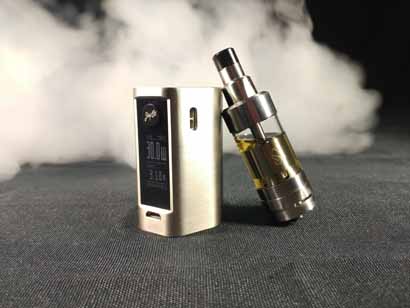The World Health Organization (WHO) has finally admitted that e-cigarettes are less harmful compared to cigarettes.
The acknowledgment came from WHO representative Dr. Ranti Fayokun, scientist in the National Capacity-Tobacco Control Prevention of Noncommunicable Diseases during the hearing on vaping regulation conducted by the House of Representatives last month, according to an article on the businessmirror.com.
Fayokun’s admission was made amid the organization’s cautious stand on e-cigarettes despite the mounting scientific evidence that they are less harmful than traditional cigarettes.
Public Health England has always maintained that e-cigarettes are 95 percent less harmful than tobacco and has encouraged smokers who can’t quit smoking to switch to the less harmful alternative, according to the article.
The National Academies of Sciences, Engineering and Medicine in 2018 released a report stating that “completely switching from cigarettes to e-cigarettes will reduce exposure to numerous toxicants and carcinogens found in cigarettes.”
“They [WHO] are saying if you are a country that cannot produce regulation and cannot enforce regulation, you must ban. That, to me, is a contradiction. A country cannot regulate perfectly, but the last thing it should do is ban because the blackmarket will proliferate. This is an issue that is extremely important to children. If we ban things, if we do not regulate things, we create a blackmarket that does not care about children, that does not care about elderly people, that does not care about us at all,” Dr. Andrew da Roza, an addictions psychotherapist and lawyer said in the congressional hearing, the article states.
A ban on electronic cigarettes and heat-no-burn tobacco products will only create a black market that will be disastrous to public health, according to international public-health experts who attended a hearing.
“If you ban them, there will simply be a black market. When the United States banned alcohol in the 1900s, that did not work out,” said da Roza.
Rep. Weslie Gatchalian, chairman of the House Committee on Trade, said the hearing was called because “the use of ENDS [electronic nicotine delivery system] and heated tobacco products is now a national concern, so much that the President [Duterte] recently issued a directive banning the importation and use of ENDS and HTPs [heated tobacco products] in public spaces.”
“This committee respects the directive of the President, and sees this as an opportunity for the Philippines to finally regulate this innovative device,” Gatchalian said earlier, according to the article.
Da Roza, who holds a master’s degree in counseling from Monash University in Australia, said e-cigarettes, HTP products, and other ENDS proved effective in winning smokers away from cigarette smoking which is extremely addictive and powerful.
“E-cigarettes are twice as effective as NRTs [nicotine replacement therapies],” he said.
“New technologies give public-health policy a unique opportunity to eliminate cigarettes in a single generation. I truly believe that. We can have a smoke-free world if we use these heat-not-burn products and if we use these e-cigarette products,” said da Roza.
He said that instead of a ban, the government should support and incentivize safer technologies that will win people away from the scourge of cigarette smoking, according to the article.
“Any regulation that slows down the developments in science means the people of the Philippines will not benefit from safer products. The government, in my humble opinion, should be investing in research on e-cigarettes and heat-not-burn products,” da Roza said.

